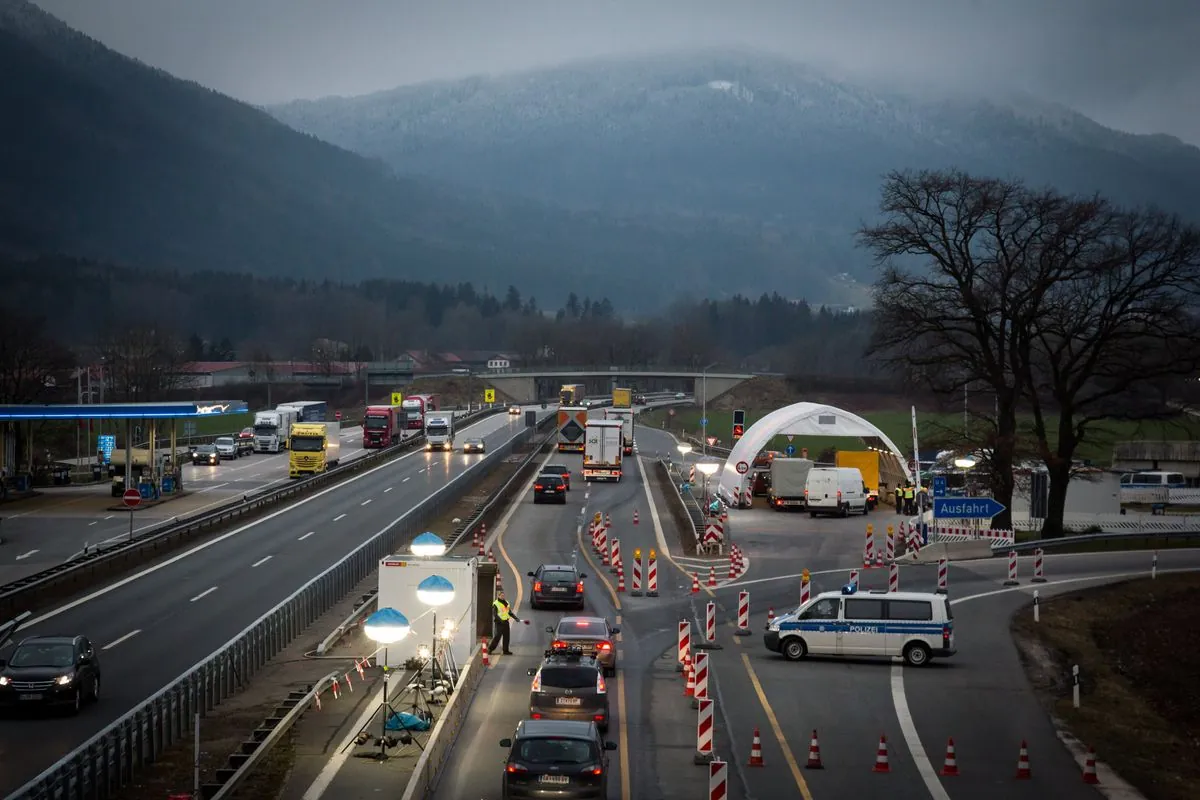Germany Tightens Border Controls Amid Rising Migration Concerns
Germany announces plans to extend border controls and detain asylum seekers, marking a shift from its previous open-door policy. The move aims to reduce irregular migration but raises concerns about EU free movement.

Germany has unveiled plans to implement stricter border controls across all its land frontiers, signaling a significant shift from its previous open-door policy. The decision, announced on September 11, 2024, aims to address the growing concerns over irregular migration.
Starting September 16, 2024, Germany will extend temporary controls to all nine of its land borders for an initial period of six months. This move represents a departure from the principle of free movement within the European Union's Schengen zone, which has been a cornerstone of European integration since 1985.
In addition to border controls, the German government has proposed detaining asylum seekers while authorities determine the country responsible for processing their cases. This process will utilize the Eurodac system, established in 2003 for fingerprint comparison among EU member states.

The timing of these measures appears to be politically motivated, with state elections in Brandenburg scheduled for September 21, 2024. Recent polls indicate that migration is the top concern for voters in this eastern German state, where Chancellor Olaf Scholz's Social Democratic Party (SPD) is fighting to retain power against the rising popularity of the far-right Alternative for Germany (AfD).
The decision to tighten border controls has elicited mixed reactions from neighboring countries. Polish Prime Minister Donald Tusk called for urgent consultations and increased support for Warsaw's immigration policies. Meanwhile, Hungarian Prime Minister Viktor Orbán welcomed the move, expressing his approval on social media.
"What Poland needs is not tighter controls on its border with Germany, but more engagement from Berlin and others in securing the EU's external border."
The implementation of these measures may impact travel within the EU, potentially leading to increased random checks on vehicles crossing borders and resulting in traffic delays. However, some neighboring countries, such as the Czech Republic, do not anticipate significant changes to their current procedures.
According to the European Union Agency for Asylum (EUAA), established in 2022, the EU received over 1.14 million asylum applications in 2023, the highest number since the 2015-2016 migrant crisis. Germany continues to receive the largest share of applications, accounting for 22% of the total, while Ireland receives the most per capita.
As Germany moves forward with its plans, discussions with regional governments and European partners will be crucial for successful implementation. The outcome of these measures and their impact on EU unity and free movement principles remain to be seen.


































